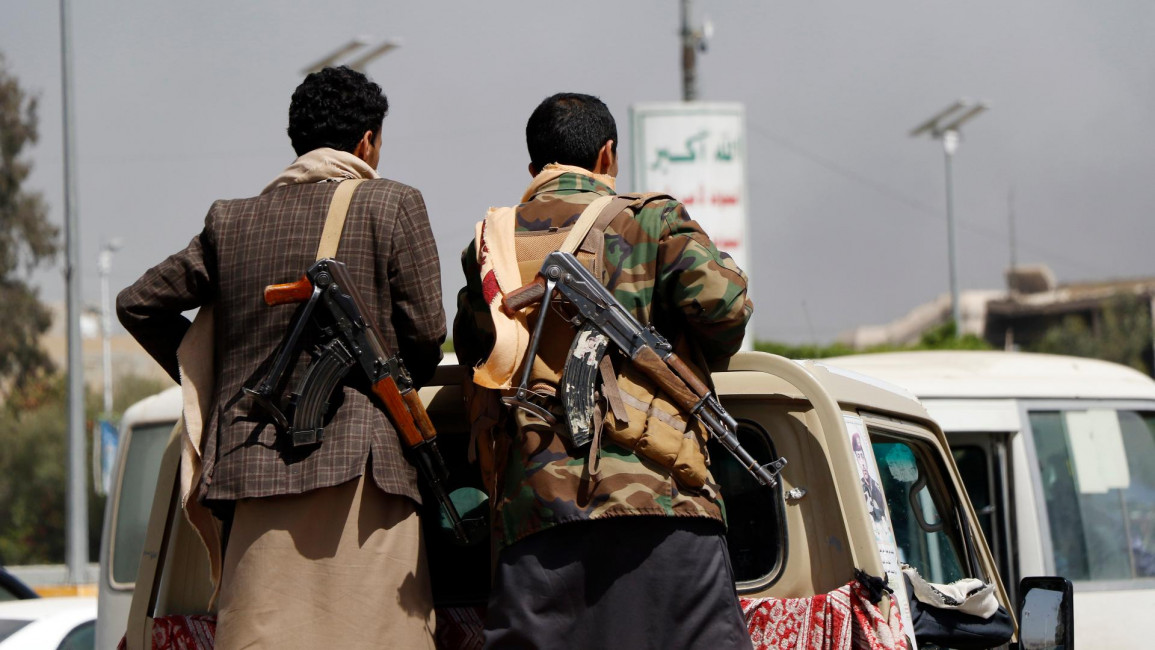UN envoy says he held talks with Yemen's Houthi rebel negotiator
The UN special envoy for Yemen said Friday that he met with a top rebel negotiator to discuss the road-map for the resolution of the impoverished Arab country's six-year conflict.
According to UN envoy, Martin Griffiths, his meeting with the chief Houthi negotiator, Mohammed Abdul-Salam, took place in Oman’s capital of Muscat Thursday. Last week, US envoy to Yemen, Tim Lenderking, had criticised the Houthis for refusing to meet with Griffiths during a previous visit.
Griffiths' statement says the two discussed UN plans to reopen Sanaa's international airport, the lifting of restrictions on Yemen's port of Hodeida, and a cease-fire to relaunch negotiations.
Griffiths urged the warring sides to "seize this opportunity and make a breakthrough towards resolving the conflict."
Abdul-Salam tweeted a photo of the meeting, saying they had discussed ways to "end the unjust siege" imposed by the Saudis on Houthi-controlled territories.
خلال لقاء صباح اليوم مع المبعوث الاممي وفريقه تم مناقشة الاتفاق الانساني والعمل على تسريعه نظراً للوضع الانساني الذي يعانية الشعب اليمني جراء الحصار الظالم ومنع دخول المشتقات النفطية واغلاق المطارات، وبما يُمهد للدخول في نقاشات أوسع لوقف اطلاق نار دائم وتسوية سياسية شاملة . pic.twitter.com/3OvtDwLc5B
— محمد عبدالسلام (@abdusalamsalah) May 27, 2021
"There won’t be a peace deal without strong Houthi support," Lenderking told reporters during a phone briefing last week, and urged the rebels to "engage with the UN envoy and show a commitment to peace."
Since taking office, President Joe Biden has revoked the Houthi terrorist designation his predecessor Donald Trump had imposed, pulled US support for the Saudi-led offensive and revived US diplomatic efforts to end the conflict.
Yemen has been embroiled in a civil war since 2014, when rebels known as Houthis swept across much of the north and seized the capital, Sanaa, forcing the government into exile.
A Saudi-led coalition entered the war the following year on the side of the government and has been fighting the Iran-backed Houthis since. The war has spawned the world’s worst humanitarian crisis.
The war has killed some 130,000 people, including over 13,000 civilians slain in targeted attacks, according to the Armed Conflict Location & Event Project. Tens of thousands of children have died of starvation and disease. The war also has become a regional proxy conflict between arch-rivals Saudi Arabia and Iran.

![Food prices have risen sharply in Egypt in recent years [Getty]](/sites/default/files/styles/image_330x185/public/2024-05/GettyImages-1246292703.jpg?h=199d8c1f&itok=ItMFz0nt)

